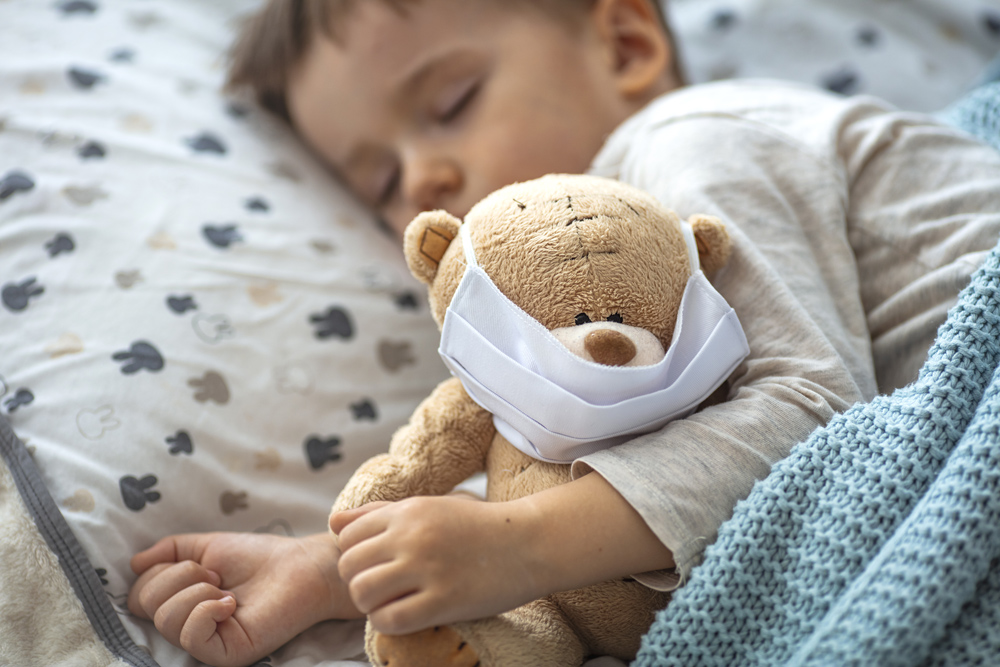
COVID Vaccines Are (Finally!) Approved for Young Children. Now What?
After more than two years of living with COVID-19, families with young children can finally get them vaccinated. It’s been a long wait—babies born in the early days of the pandemic are now toddlers, with lots of experience getting their noses swabbed and a remarkable understanding of Zoom.
The vaccine for young children is great news for families, says Dr. Melissa Mason. She is a pediatrician in Albuquerque, and chairs the immunization committee for the New Mexico Pediatric Society. She’s also a mom, who’s been parenting through the pandemic with the rest of us.
“One of the single most important things that you can do for your kids is to get them vaccinated to protect them from COVID-19,” she said. “Any child who is eligible to get the vaccine, the recommendation is to get them vaccinated.”
So, who is eligible? The latest approval means all children six months and older can get vaccinated now. Until June 2022, children had to be at least five years old to get their shots. Dr. Mason said the long wait has been hard for families, but it’s due to very high standards for vaccines for young children.
“I would take the fact that it took so long as a really good sign that this is a very safe vaccine,” she said. “When it comes to medications and vaccines for children, they are even more stringent with rules of making sure that it is absolutely safe and of course that it’s effective. So, it took longer for kids.”
Even if you’ve had COVID and it wasn’t so bad, she said, there are lots of reasons to vaccinate. For one thing, preventing infection in your own family can help others in the community. By slowing the spread, you can help keep the virus away from people who are more vulnerable or can’t be vaccinated, like babies under six months. Plus, the natural immunity you may get through COVID infection varies a lot. Dr. Mason said some people may have strong immune protection after getting COVID, while others have very little.
“Even if you have protection, is it enough to protect you, and for how long? That can be very variable,” she said. “With the vaccines, it’s much more predictable that there is good protection for a longer period of time.”
Making Shots Easier on Kiddos
Of course, most kids don’t like getting shots. The poke, and the fear beforehand, can make immunizations stressful for some kids and families. Dr. Mason has lots of experience with this. Depending on the child’s age, she said she talks to them about the vaccines they are getting, and why. For certain kids, that kind of honest information helps them steel themselves for the poke.
Distraction is also key. Although some kids like to watch the whole process, most do better if they are distracted by conversation or funny faces from a family member while they get their shot. Or, Dr. Mason said she sometimes tells jokes. “They’re not great jokes,” she said. “They are pediatrician jokes.”
So, what kinds of jokes does a pediatrician tell while kids are getting vaccinated?
Q: Why didn’t the bicycle get up in the morning? A: Because it was too tired.
Q: Why don’t gingerbread men wear shorts? A: Because they have crummy legs.
These jokes are literally approved by a doctor.
Other Ways to Stay Safe
If it feels like things are still hard, it’s not just you. Although the pandemic is in a safer stage than it was before, families with young children are still coping with child care disruptions and weighing the risks of COVID against the importance of giving their kids normal social experiences.
Dr. Mason said vaccines can help kids have some of those social experiences more safely. This is especially true when vaccines are combined with frequent hand washing, staying home when you’re sick, and avoiding others when they are sick. And although New Mexico has moved away from mask mandates and closures, Dr. Mason said families should still use masks and social distancing as protective tools when it makes sense for their families.
Especially for families with young children who are not yet vaccinated or are only partially vaccinated, Dr. Mason said it’s best to avoid bringing those kids to crowded indoor spaces, and to mask up if you do. Scheduling playdates or gatherings outdoors is still a great way to socialize with lower risk, especially if you can find some shade or a sprinkler to stay cool (or eat some green chile, because science).
Finally, the best guidance for today might not be the best guidance in six months. The COVID-19 situation is changing fast, and it’s important to have reliable information. Dr. Mason recommends healthychildren.org, which is run by the American Academy of Pediatrics. There, you can find trustworthy information about COVID and many other topics, from heat rash to sibling rivalry. New Mexico’s Department of Health COVID-19 website is also an important resource for information specific to New Mexico, including all the info you need to schedule your child’s vaccine, today.
Other Vaccines
While you’re at it, it’s a good time to make sure your kids are up-to-date on other vaccines. If you aren’t sure, New Mexico has an easy website for looking up your child’s shot record. If it’s been awhile since your child had a check-up, get that appointment scheduled. Regular check-ups are good for your child, and your pediatrician can field those questions you have but aren’t sure who to ask (“My kid’s toenails seem to grow really fast. Should I worry about that?”)

Schedule a Vaccine
All New Mexicans age 6 months and older are now eligible for a COVID vaccine. Details are available here, including easy resources for finding vaccines near you and scheduling an appointment
Did you find this article helpful?
Subscribe to Bright By Text to get more free tips and resources for your child’s journey, right to your phone!
